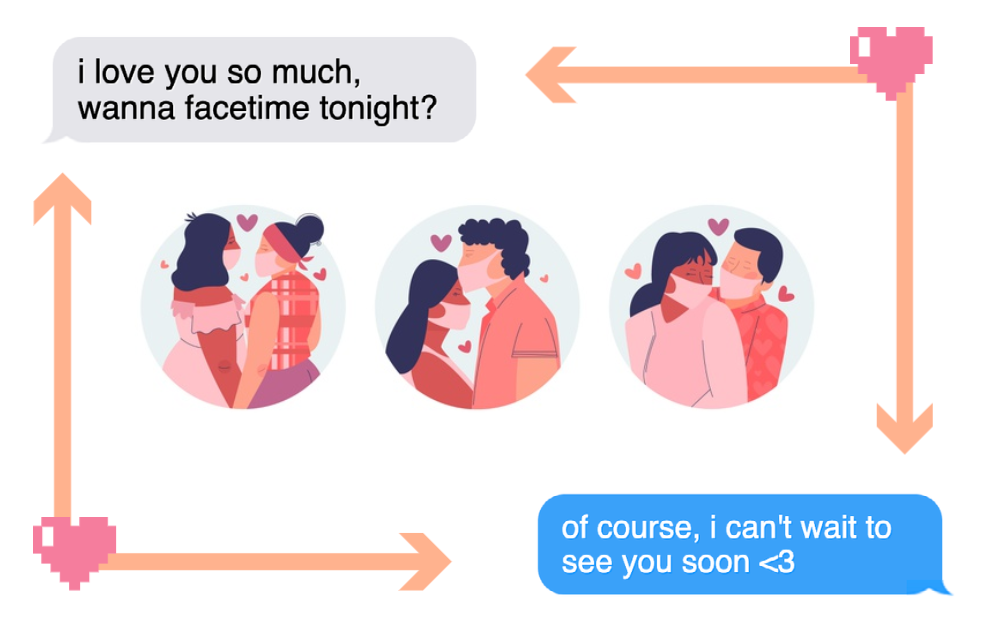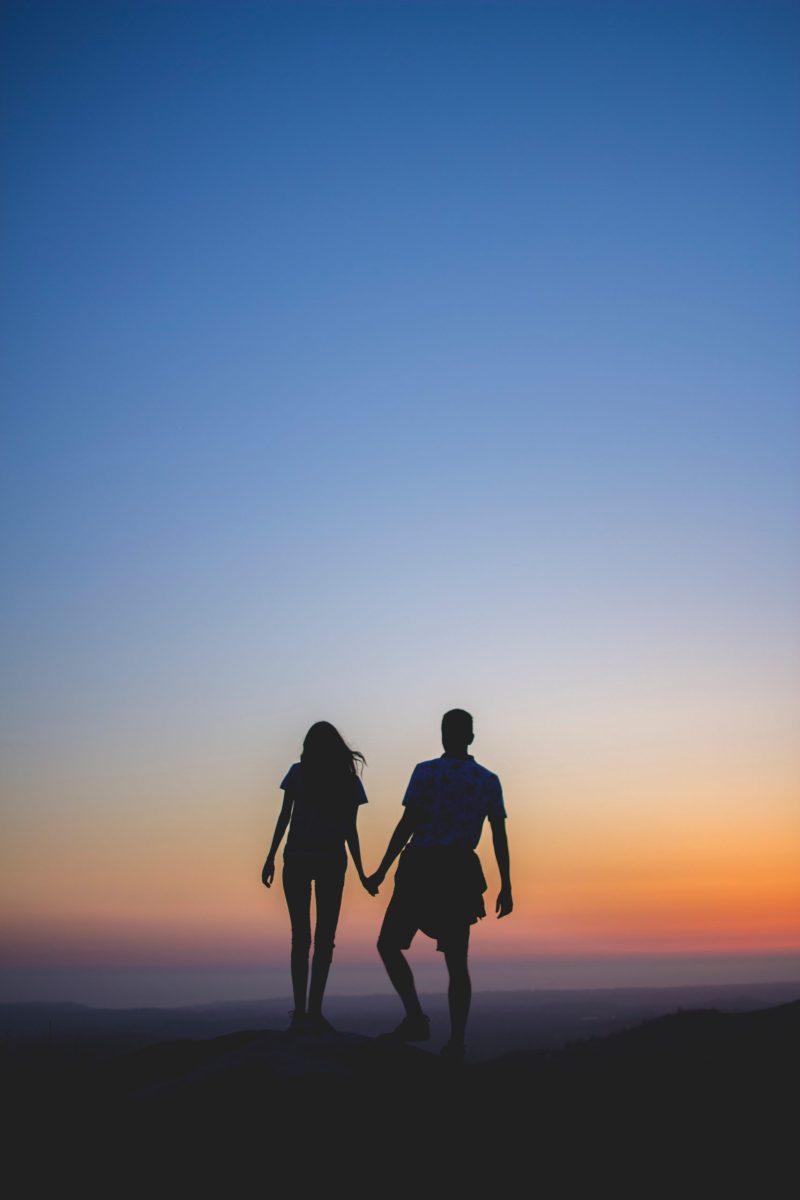Prior to COVID-19, on-campus living afforded Wellesley students many freedoms sometimes not offered in their home environments: namely, having the privacy and autonomy to sleep with whoever they wanted, whenever they wanted, if they wanted. Whether it be by taking the Senate bus — colloquially known as the cuddle shuttle or f*ck truck — into Boston for a Friday night fling, spending messy weekends at Babson and Olin or perusing the Tinder profiles of other Wellesley students, students could pursue sex through a variety of means.
Now, with the pandemic and the subsequent implementation of Wellesley College’s guidelines that discourage sex beyond the confines of residential pods, sex has become a bygone venture for many students living on campus. In spite of the administration’s efforts, however, some students are bypassing restrictions in pursuit of human contact.
Of the 111 Wellesley students surveyed by The Wellesley News, around 60 percent reported having hooked up with at least one person during the pandemic. 45 percent said they took COVID-19 related precautions, 16 percent did not and the remaining 39 percent abstained from sex altogether. 60 percent of respondents said they hooked up less than they did before the pandemic began, but a surprising 4 percent reported having more sex during the pandemic.
For those still sexually active, Ally Gago, president of the Sexual Health Educators or SHEs, encouraged students to use harm-reducing strategies to help mitigate the spread of COVID-19.
“We’re just assuming that people are still having sex, like, let’s be real here, they are,” Gago said. “So what can we do to allow them to have safer sex and to do the things they want to do in the safest way possible?”
Gago’s training video for students reentering campus this spring included strategies such as limiting hook-ups to pods or bubbles, using barriers like condoms or dental dams during oral sex and any sex act that may put you or your partner in contact with fecal matter. In addition, the video recommends that students wear masks, abstain from kissing during sex and opt for safer alternatives to in-person hook-ups like cybersex or masturbation.
“Getting comfortable with yourself and phone sex, like through practice, is probably the best way that I could like recommend getting comfortable with [cybersex],” Gago said.
Hook-up Perspectives: on-campus and off
With restrictions in full effect, choosing who to hook up with became much more difficult. Not only did students need to consider potential matches, but they also needed to consider whether their blockmates were comfortable with the idea, especially when deciding to seek partners outside of the school.
“I’m not opposed to hooking up with people off-campus, but something I’ve kept in mind when thinking about it is not wanting to venture outside of the bubble,” an upperclassman, Sam**, said, adding that COVID was not the only deciding factor. “As an upperclassman, I would feel uncomfortable hooking up with a first-year and probably a sophomore also, and there were a lot of those on campus in the fall.”
Another student, Lucy, decided to find partners outside of Wellesley, seeking a wider variety of men. For her, communication and compromise became the biggest factors while hooking up during COVID.
“The biggest challenge is definitely finding people who were willing to meet me halfway when it came to testing and being safe with COVID,” the first-year said. “The person that I ended up with wasn’t the first person that reached out to me or who I reached out to, and some of the people got annoyed by the fact that I was asking about being tested.”
Students mitigated risk to varying degrees. Some ensured they were only hooking up with people on campus, while others trusted off campus hook-ups to undergo rigorous testing before having sex.
One student admitted to not discussing safety at length prior to hooking up with another Wellesley student.
“We hadn’t really discussed COVID safety or anything, but we had hung out before in small groups, so I generally knew what their comfort level was when it came to interacting with other people,” the upperclassman said. “Not a lot of COVID precautions were taken, other than maybe washing our hands.”
A straight-identifying Wellesley sophomore, Lauren**, who exclusively traveled off campus to hook up, approached her encounters differently. She met men through Tinder and would confirm how often they were being tested, how many people they were seeing and whether or not they were doing anything else that could expose her to COVID.
We’re just assuming that people are still having sex, like, let’s be real here, they are.
She did acknowledge the exposure risks tied to transportation. Since Lauren did not have a car, she would double-mask when taking an Uber, always made sure she was washing her hands regularly and would self isolate until her next COVID test following her hook-ups.
But communication does not guarantee safety, especially where strangers or shallow acquaintances are concerned. Lauren spoke to us on the dangers of empty promises.
“If you do want to hook up with someone, I think that you can do it and be safe. Of course, there is a risk, because with the tests that we’re taking, they’re not 100 percent accurate. And if you’re asking someone if they’re getting tested, there’s always the possibility that they might lie to you or something.”
For Lauren, the harsh reality that off-campus students might not respect COVID precautions affected who she was or was not willing to sleep with.
“I have some friends who wanted to go and meet up with some guys from Harvard, who were kind of like the party type,” she explained. “I didn’t feel comfortable because I figured that if they were the type, they would also not be safe regarding COVID.”
While some students did not regret the decision to hook up with someone off campus, the survey showed a wider range of feelings. For many students, would-be one-night stands turned into monogamous relationships due to safety concerns. In Lucy’s case, she acknowledged the risks and recognized the importance of being cautious when in pursuit of sex.
“With everything going on, I did realize that there is a chance I could bring COVID back to campus, and then it’s no longer about my safety, it’s about the safety of everyone on campus, the professors and everyone who’s interacting with Wellesley students,” she said. “I was definitely way more strict about the types of people I was seeing. I have to make sure they understand the gravity of the situation.”
Lucy added that students should prioritize safety by making sure that sexual partners are regularly getting tested for COVID and STIs.
Sam felt like Wellesley’s safety precautions made the risk worth it at the time but added that sex outside the bubble was still something to be cautious of.
“At the time, I was definitely feeling pretty confident about the Wellesley bubble, so I felt that the risks of hooking up with the person were outweighed by the benefits of hooking up with the person,” they said, adding that even adding one more person as a close contact was risky. “It was someone I had spent a bit of time with already, so they would have been considered a close contact already.”
Aside from the precautions mentioned, some students cited other reasons for why they felt hooking up was still a necessity.
“I decided to hook up with people over the semester for my own stability and mental health, especially because this past semester was way harder than I expected it to be,” Lucy explained. “After a long week I’d be like … let’s have some drinks and just chill. But I realized that, when I did that, the next day I felt way less productive, and then I would get frustrated. But if I saw someone, then the next day I felt refreshed, ready to go.”
Inevitably, the pandemic has impacted the way individuals navigate their relationships and their sex life. Lauren said that these impacts would be everlasting, affecting the way she communicates about sex moving forward.
“There are conversations that you can’t skip out on because the risk is definitely not worth it,” Lauren said. “The risk of getting an STD or COVID or whatever, really, it can happen to anyone. So you can’t think that you’re exempt from that.”
The pandemic has upended nearly every aspect of day-to-day life, but hooking up remains a staple of some students’ experiences. Either way, Wellesley College has yet to experience a significant spike in COVID-19 cases. Whether that has to do with the many precautions students have taken, luck, or a combination of the two, hooking up will likely endure as an aspect of on-campus life. Bearing this in mind, Gago urges students to practice harm reduction whenever possible.
“If I could get one thing across to folks,” Gago said. “It’s practice harm reduction. There’s no way to make anything entirely safe.”
**Names have been changed to protect student anonymity.






